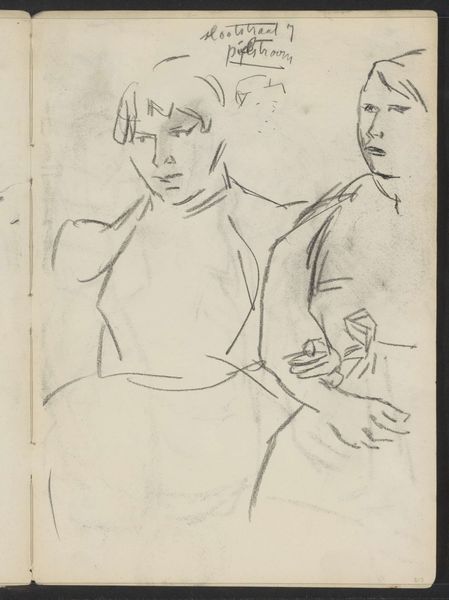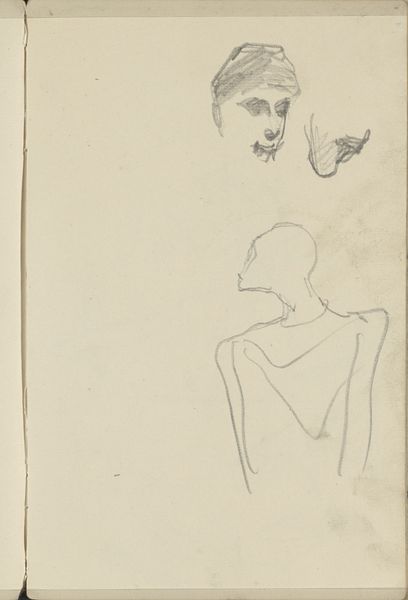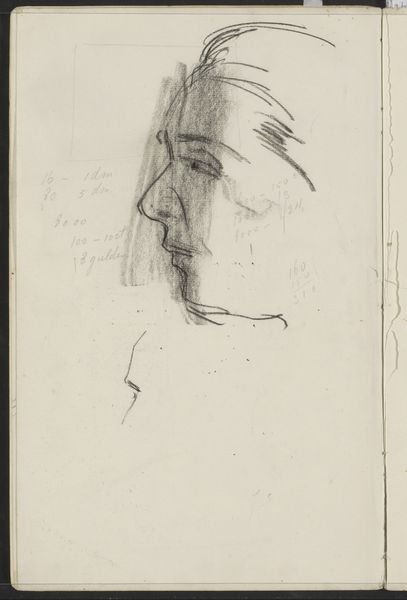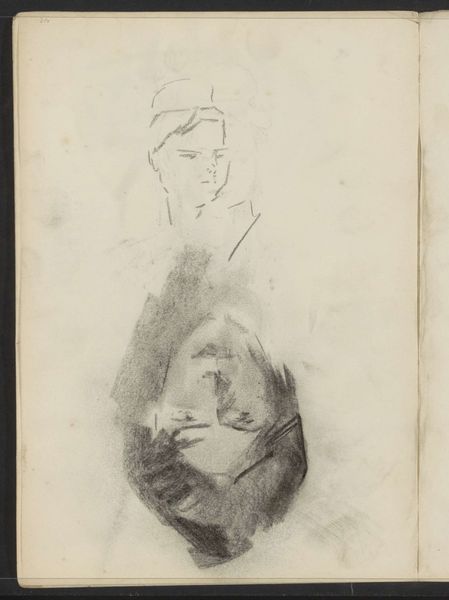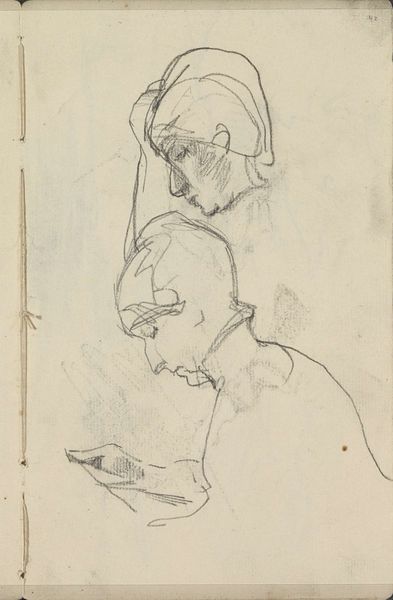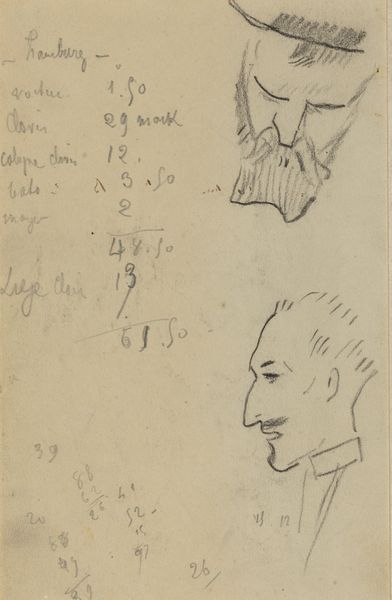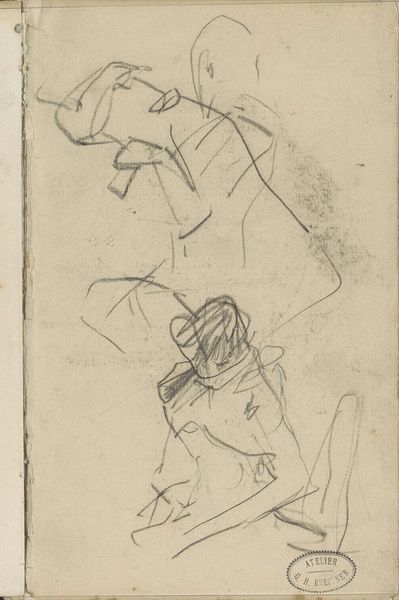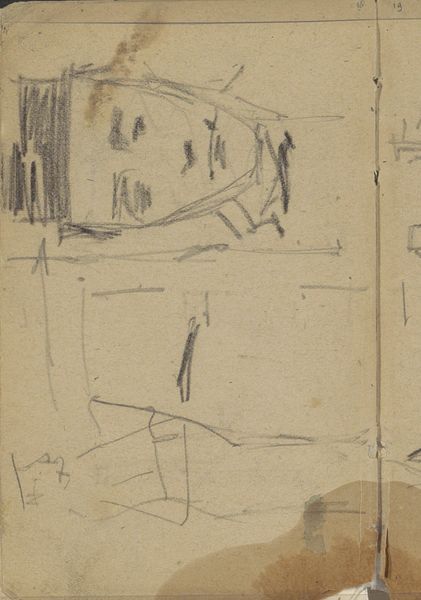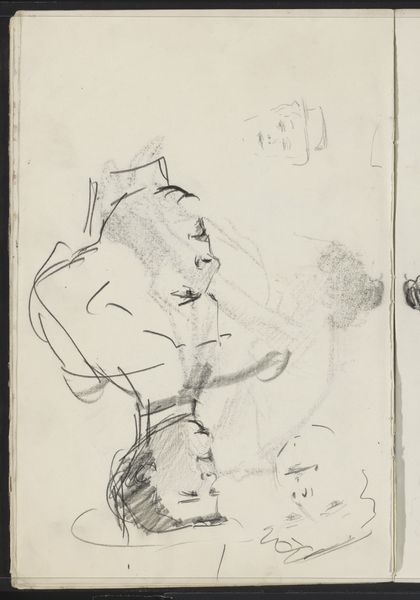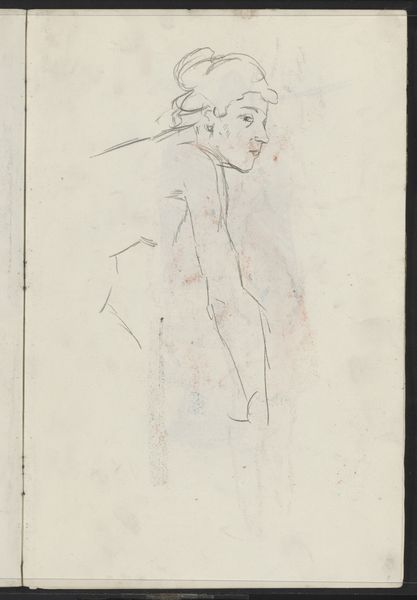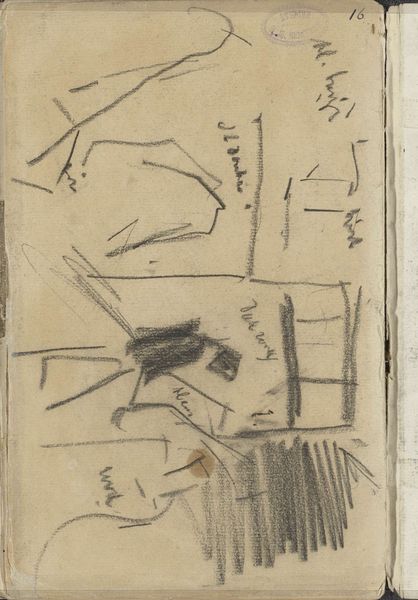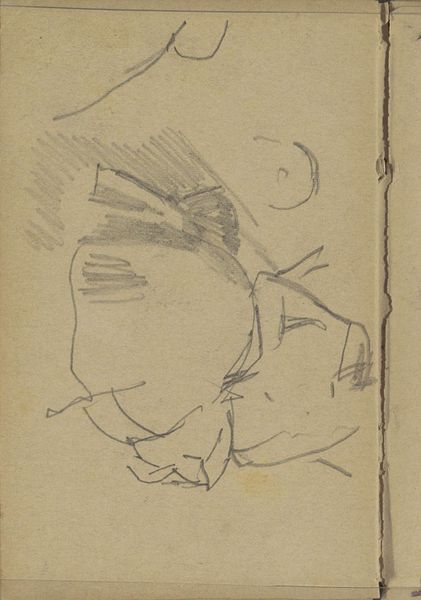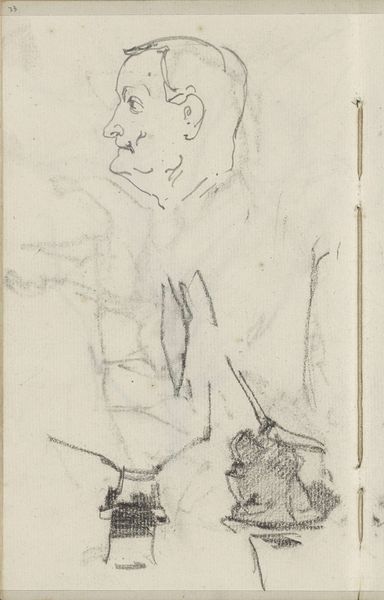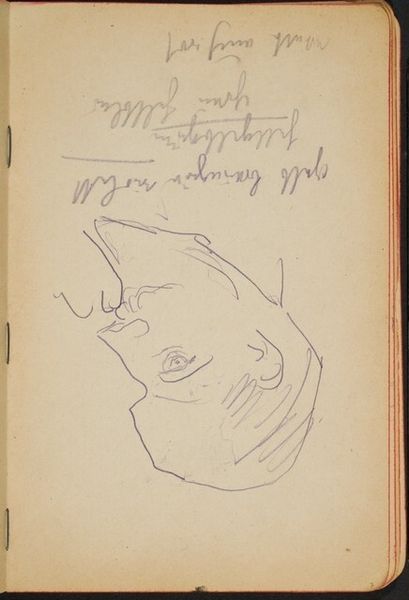
drawing, paper, ink
#
portrait
#
drawing
#
pen sketch
#
figuration
#
paper
#
ink
#
ink drawing experimentation
#
realism
Copyright: Rijks Museum: Open Domain
Editor: So, this is “Twee vrouwenhoofden” by Isaac Israels, a drawing using ink on paper, likely created sometime between 1886 and 1934. The top head feels very grounded and almost somber to me, while the sketch at the bottom appears far more rudimentary. How do you read these two portraits alongside one another? Curator: Ah, a face staring back at you from history. It’s the intimacy that strikes me. Look at those almost hesitant lines defining her face. The bottom one feels like a study, a hurried experiment to capture the basic geometry before the spirit fled. Editor: That makes sense. So the bottom figure might not have been intended as a finished work? Curator: Not necessarily, but think of it like catching fireflies. Sometimes you just need the jar, even if the light escapes. Israels, immersed in a painterly world, may be chasing impressions as swiftly as they arose. The starkness of the sketch, though, doesn't diminish its importance, don’t you think? Editor: Definitely! The sketch is really interesting when you frame it as a stepping stone to understanding his artistic practice, not just as the art itself. Curator: Precisely! Now consider the world brewing outside the page—the rise of modernity, shifts in societal norms... do you feel those silent dramas echoing in her gaze? Editor: I think I’m starting to. Seeing them not just as "portraits" but reflections of the artist’s eye in that period opens everything up. Thanks! Curator: And thank *you* for reminding me to slow down, and look again. It's easy to let the weight of history eclipse the quiet magic of a single line.
Comments
No comments
Be the first to comment and join the conversation on the ultimate creative platform.
